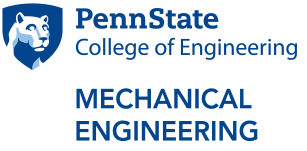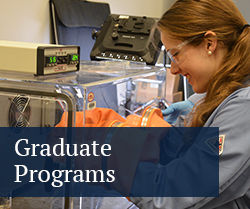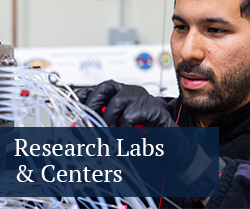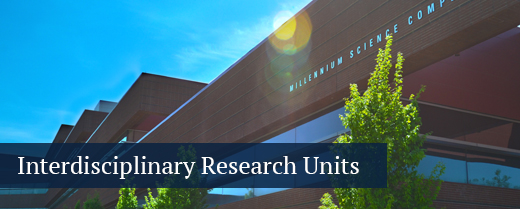Thermofluids and Energy
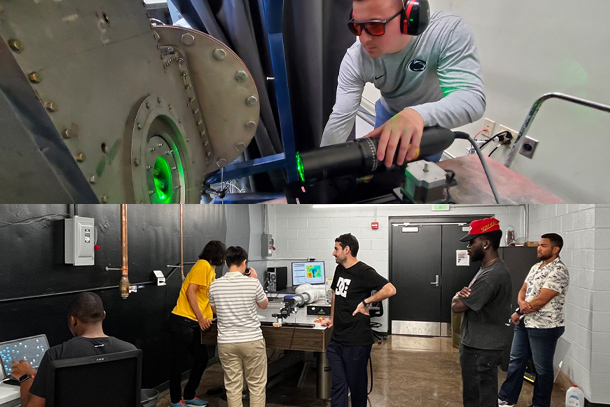
The thermofluids and energy research super group studies coupled fluid mechanics, heat transfer, and thermodynamics problems with the goal of developing sustainable propulsion and power generation systems. These systems feature external and internal aerodynamic flows, two-phase heat transfer, combustion instability, and propellants and energetics, to name a few examples. Specific research thrusts include:
- Increasing efficiency while reducing the size of gas turbine engines important to novel and new turbine architectures including hybrid electric propulsion systems
- Leveraging advanced manufacturing techniques, including metal additive manufacturing, to create new and efficient cooling methods
- Developing novel diagnostics (using high-speed lasers and cameras and minimally-invasive probes) as well as signal processing strategies (using statistical, machine learning, and physics-informed techniques) to study complex fluid and energy systems like swirl-stabilized combustors, supersonic jets, high-speed inlets, and more
Sample Projects
- Reducing the Turbine Fuel Burn through Double-Wall Cooling Made Possible by Additive Manufacturing
Sponsor: Federal Aviation Administration
Faculty PIs: K. A. Thole and S. P. Lynch
- Computing flame transfer functions from multi-fidelity measurements and simulations
Sponsor: Solar Turbines Inc.
Faculty PIs: Y. Xuan and S. J. Grauer
- Physics-informed background-oriented schlieren for wildfire-relevant combustion
Sponsor: National Science Foundation
Faculty PI: S. J. Grauer
- ARTHUR (Advanced Reflood Thermal Hydraulics Uncertainties Resolution)
Sponsor: U.S. Nuclear Regulatory Commission
Faculty PI: F. B. Cheung
- Piezoenergetics – Coupled Piezoelectric and Nanoenergetic Materials with Tailorable and Switchable Reactivity
Sponsor: Air Force Office of Scientific Research and Purdue
Faculty PIs: Richard Yetter and Eric Boyer - Enhancing CMC Temperature Performance in High Hydrogen Environments using Field Assisted Sintering Technology
Sponsor: Department of Energy—National Energy Technology Laboratory
Faculty PIs: S. Lynch, J. O’Connor, D. Wolfe (Applied Research Lab)
Research Super Groups
- Bioinspired and Multifunctional Materials, Systems, & Structures
- Biomechanics & Biodevices
- Complex Flows
- Engineering Education Research
- Low-carbon Energy Systems
- Product Design & Manufacturing
- Systems, Controls, & Robotics
- Thermofluids & Energy

